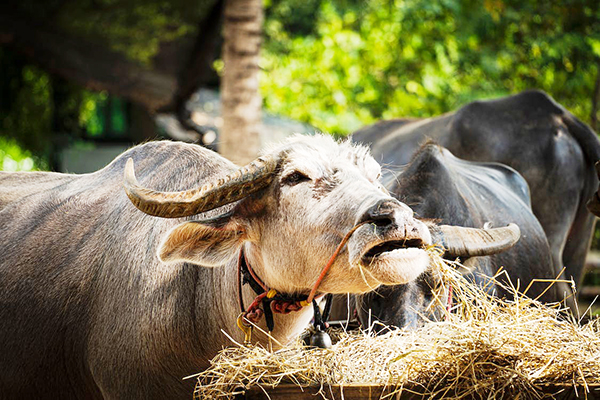TUGUEGARAO CITY, Cagayan – The Department of Agriculture (DA)-Region 2 (Cagayan Valley) has confirmed that anthrax infected and killed four carabaos in Santo Niño, Cagayan recently.

FOUR carabaos were infected and killed by anthrax in Cagayan. (File)
The DA confirmed the infection days after two residents were suspected to have contracted anthrax after consuming infected carabao meat.
DA-Region 2 Regional Executive Director Rose Mary G. Aquino said that anthrax symptoms on the slaughtered carabaos were first observed on Sept. 21. However, these were not immediately reported to the DA and ignored by the farmers who thought these as simple animal illnesses.
Aquino said that the carabao was suspected to have contracted anthrax due to skin lesions before they died.
The Agriculture department advised farmers not to consume the meat of dead animals suspected to have anthrax. These should be buried immediately to prevent possible spread to other livestock or humans.
The DA and the Department of Health (DOH) will conduct vaccination on carabaos aged six-months-old and up here to prevent its spread.
Aquino urged farmers to report anthrax symptoms. She added that concerned agencies and the local government unit have restricted the transport and sale of carabao meat outside of the town.
The DOH and the Cagayan Provincial Health Office are currently conducting intense surveillance and monitoring of possible anthrax infection on humans as more or less 141 residents purchased meat from the infected carabaos.
Twelve suspected cases of human anthrax infection were recorded in Cagayan and three were confirmed by the DOH in December 2022. These were the last occurence in the area in two years.
According to the Centers for Disease Control, anthrax is a serious disease usually caused by Bacillus anthracis bacteria found naturally in soil around the world.
It commonly affects livestock and wild animals and people usually get sick with anthrax if they come in contact with infected animals or contaminated animal products, it added.